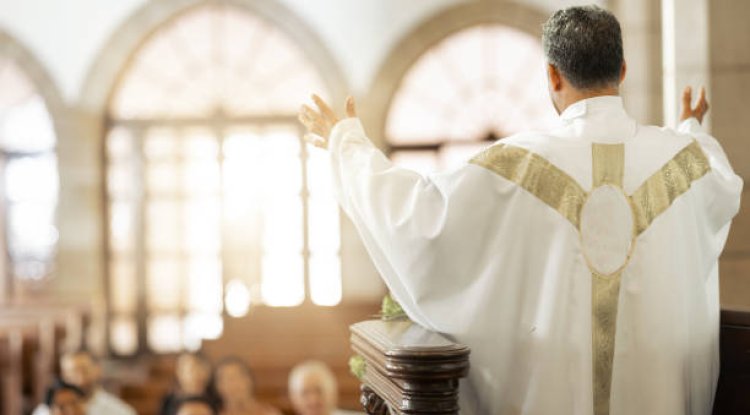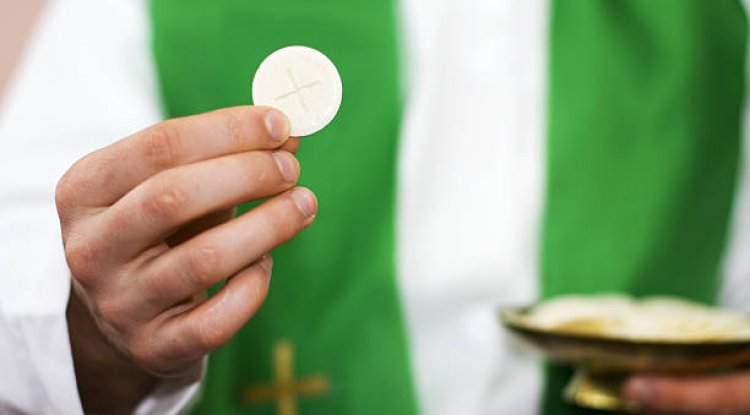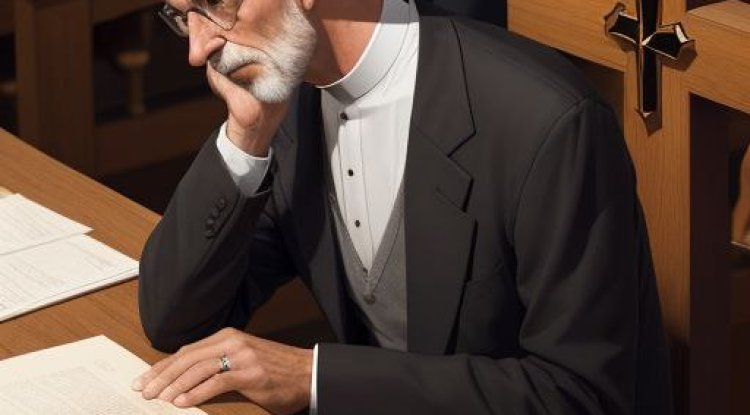THE JOY OF RESTORATION
HOMILY FOR THIRTIETH SUNDAY IN ORDINARY TIME, YEAR B. Jeremiah 31:7-9; Psalm 126; Hebrews 5:1-6 and Mark 10:46-52.

The liturgy of today presents to us the unceasing quest of God to find and restore His lost children to glory. It presents to us that God is the searcher, the finder and restorer of His people who have lost their sense of direction in life. Some have lost their relationship with man and God, and need to be restored. Some have lost business, contracts, family, freedom, and so many other loses that have left them in darkness which need to be regained. It is on this note that we will feel the joy of restoration when God eventually come through for us as He did to the people of Israel and Bartimaeus the blind beggar.
In the first reading, we hear the Lord says, “Sing aloud with gladness for Jacob, and raise shouts for the chief of the nations; proclaim, give praise and say, ‘The Lord has saved his people, the remnant of Israel’” (Jer. 31:7). Israel experiences its heyday or greatest success under King David and Solomon, and has been in decline ever since. For several decades, they have suffered in exile, as slaves in a foreign land. Jeremiah promised that the Lord will “gather the remnant of (his) flock out of all the countries where I have driven them, and (would) bring them again to their fold; and they shall be fruitful and multiply” (Jer. 23:3). In today’s pericope, the Lord said, “Behold, I will bring them from the north country and gather them from the farthest parts of the earth, among them the blind and the lame, the women with child and her who is in travail, together a great company, they shall return here” (Jer. 31:8).
Jeremiah’s message reveal God’s plans for His people, even in tough times. He sees the suffering of His people and plans to restore them. The Lord promises to bring back the remnant of Israel from the north, comforting and guiding them as a father, ensuring a safe return for all, including the vulnerable. The blind, the lame, and those in distress are all welcomed back. God promised to reverse their circumstances. They journeyed north into Babylon in slavery, and now God will bring them home from the north. The road to exile will become the road to freedom and the road of judgment will become the road of deliverance. We can find hope in God’s promise of restauration. No matter what we face, God is there to bring us back and heal us. The story offers hope, reminding us that God will restore us, even in hardship. Jeremiah also foretells a new covenant through Christ, bringing forgiveness and eternal life.
The joy of restoration is crystal clear in the gospel of today, which presents the story of Bartimaeus, the blind beggar, who called to Jesus for mercy ad was restored. Mark gives the Aramaic name (Bartimaeus) and translates into Greek (the son of Timaeus) for Gentile readers. Bar means son and timao means honor, so Bartimaeus means son of honor. The man’s circumstances (a blind beggar) stand at odds with his potential name (son of honor). As a blind beggar, he lives on the margins of the society. But Jesus will show him respect and restore his sight so that the man may claim the honor accorded to his name.
Let us have a close look on the unceasing quest of God to find and restore His lost children to glory. Jesus took the move of leaving Jericho to Jerusalem is already a quest to realize his mission to restore humanity to glory. If He had not, probably the sight of the blind beggar wouldn’t have been restored. When the blind beggar sitting by the road heard that it was Jesus of Nazareth, he began to cry out and say, “Jesus, son of David, have mercy on me” (Mk 10:47). Many rebuked him, telling him to be silent but he cried out the more, “Son of David, have mercy on me!” and Jesus stopped and said, "Call him" (vv. 48-49). Amidst the noise of the crowd, Jesus hears the cry of beggar. Jesus’ ears are attuned to the marginal persons: the woman with the issue of blood (Mk 5:25-34); the Gerasene demoniac (5:1-20); the blind man at Bethsaida (8:22-25) and now the blind Bartimaeus.
Jesus does not address the blind man directly, but orders the crowd to “Call him” (v. 49). He commands them to stop obstructing and start enabling. He turns stiff arms into helping hands. Then before healing the blind man, Jesus dignifies him, moves him from the wings or roadside to center stage and asked him, “What do you want me to do for you?” (v.51) and he said, “Let me recover my sight” (v.51). At this point, Jesus exercised His authority over this blind beggar and restore his honor saying, “Go, your faith has made you well” (v.52). Our faith leads to true sight and discipleship. Bartimaeus represents all of us, called out from the “city of sin” into a life with Christ. Living in sin is tantamount to spiritual blindness and we are encouraged to cry out persistently to the Lord for mercy and help others struggling to find their way.
In accordance with the second reading, Jesus is the high priest who offers gift and sacrifices for sins. This Priest understands human weakness and has compassion. We are called to have the same compassion of Jesus towards the vulnerable. A beautiful way to practice this, is to ask a vulnerable person today and always, “What do you want me to do for you?” With this request, a broken relationship can be restored through forgiveness. Let us all begin to make efforts to search, find and restore what most have been lost due to sin.
Happy Sunday!
Fr. Ken Dogbo, OSJ
What's Your Reaction?



















